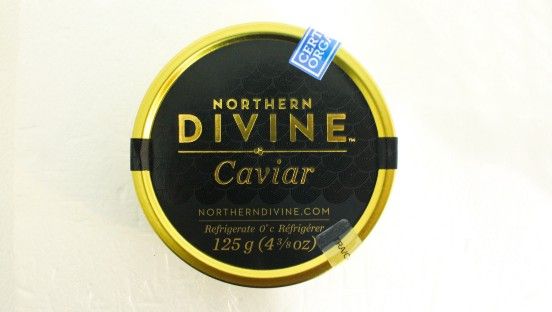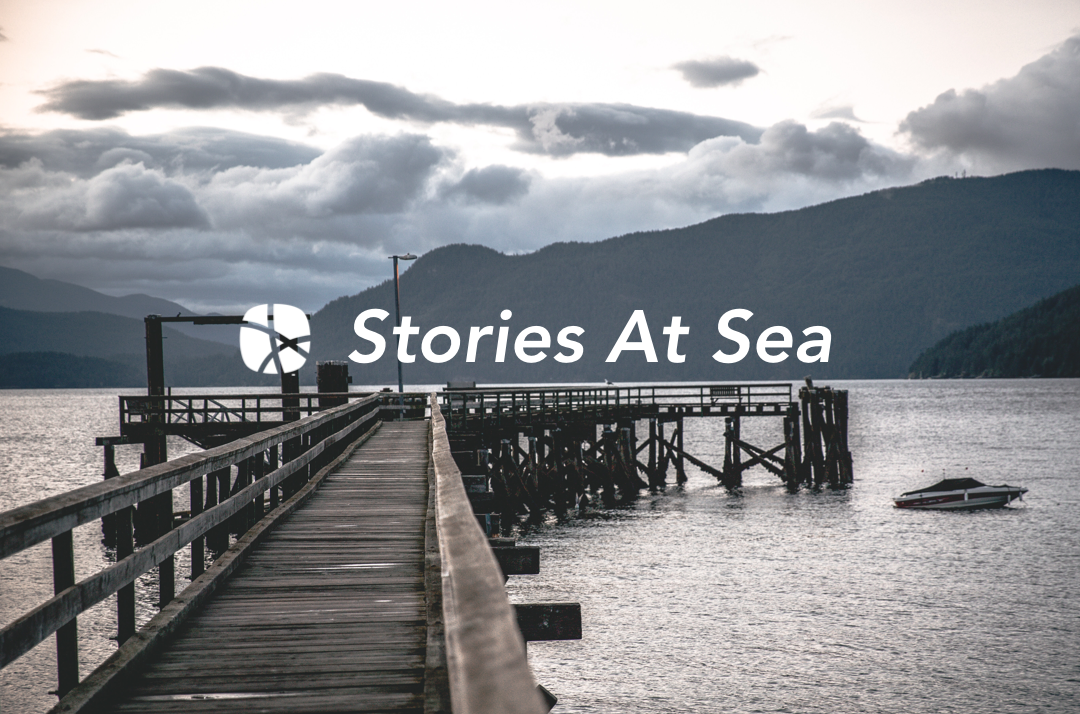
Stories at Sea is a series of interviews highlighting artisanal fishermen, fisheries, and suppliers who are furthering the seafood industry within Canada. We are here to tell their stories and to pass on their wisdom to the greater community.
Northern Divine Aquafarms is a 100% land based organic seafood farming facility. They produce Certified Organic, Ocean Wise recommended sturgeon caviar and meat. They have been recognized as Best Choice by SeafoodWatch and are forging the way for sustainable, land based aquaculture in Canada.
We sat down with Bryan Marshall, their General Manager, to hear more about Northern Divine’s rise to success, what the industry can do to be more sustainable, and the opportunities out there for social entrepreneurs.
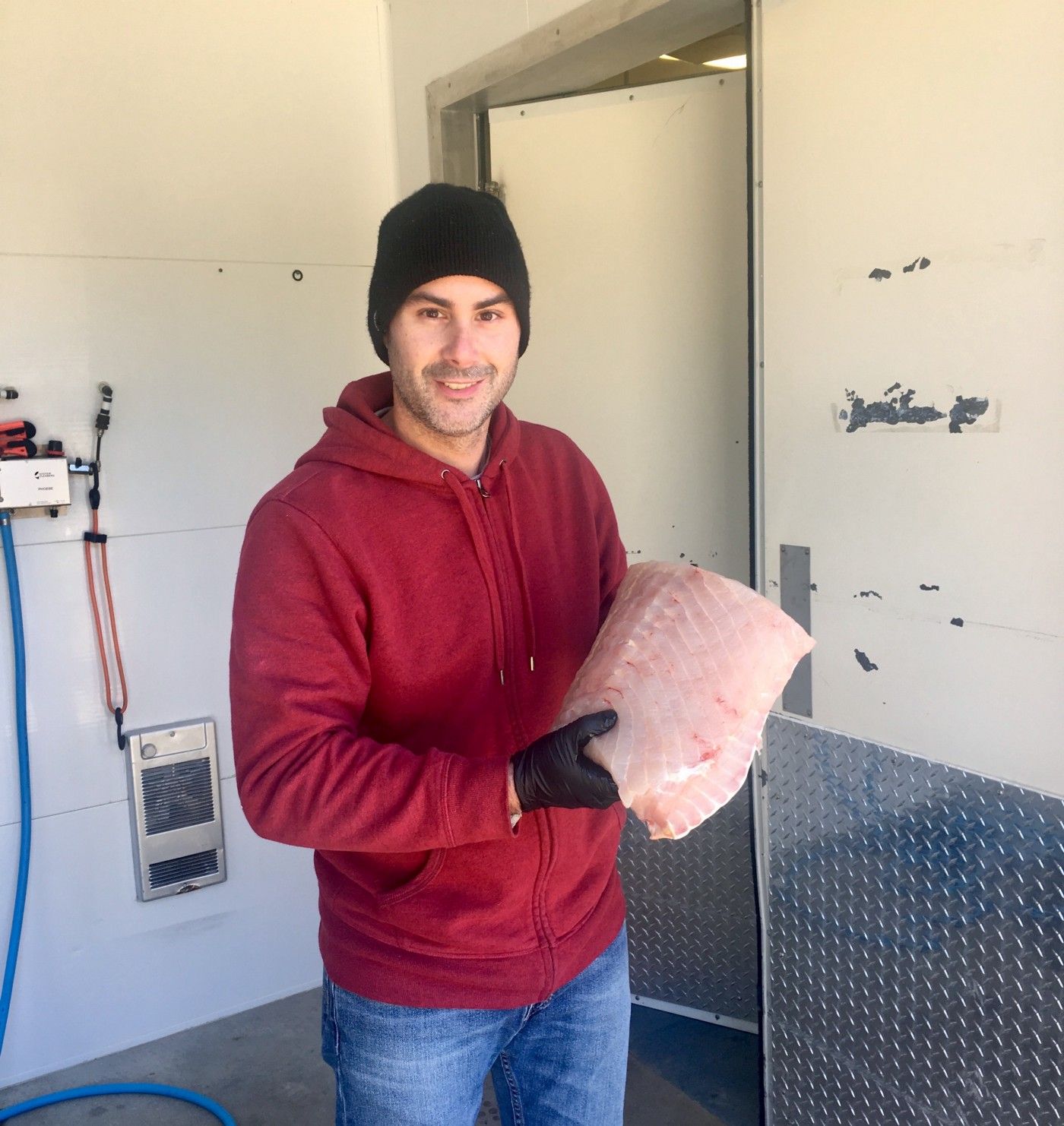
Freshline: Bryan, can you tell us a bit about Northern Divine and how you were introduced to them?
Bryan Marshall: Northern Divine originally started in the early 1980s as a hatchery, feeding smolt and fry to net farms up the inlet. From there, we grew into a Coho broodstock facility, supplying live ‘eyed’ eggs to fish farms around the world. At this same time, we started working on a sturgeon sustainability program with Vancouver Island University. When the program concluded, there were a bunch of sturgeon left over from the program that were just going to be killed. Bernie Bennet, our founder and sole owner, took those fish and applied for a commercial fishing license to rear sturgeon. Within a few short years, we ended up rearing more than 25,000 sturgeon and kickstarting caviar and sturgeon meat production for local markets. Our side business is Coho Salmon, selling their live ‘eyed’ eggs to fish farms around the world.
The opportunity [to work at Northern Divine] had been floating around for some time. When I first came here, I knew nothing about fish farming. It was completely foreign to me. Bernie, the owner here, was looking for somebody to come in and run the business side of things, managing the staff and implementing protocols, making sure we could run as efficiently and effectively as possible. I have been the general manager here for two years now, and I am still trying to get ahead of the learning curve. Every day I’m confronted with something I don’t have an answer to, but that’s where the experts- Burt, Wendy, Trevor, and our other fantastic support staff- come in. We are all working towards a common goal. We want to see the company succeed and to be a part of the positive change. They are a terrific group of people to work with.
Where are you from? What’s your background?
I grew up in Surrey, BC. I moved over to the Sunshine Coast in 2008 to open up an IGA franchise. It was an older store. My family put a lot of work into it, running it for 4 years before selling.
From there, I became the general manager of Holy Crap Cereal, one of the biggest success stories from Dragons Den. When I sold my IGA, I had this grandiose plan to take off and travel for a year. At the time, where I was living, Brian and Corin Mullens were my neighbours. They were the founders of Holy Crap Cereal, and had just had their successful run at Dragons Den. Within the first two airings of their episode, they sold a million bags of cereal. They needed some help scaling, as they were a mom and pop business doing it all out of their garage and small warehouse space. At first, I went to work with them as an operations consultant, helping them get distribution under control. From there, I became their sales consultant, and then their general manager. I was with them for 4 years, until the company was sold. From there, It was time to make a change, and that’s when I transitioned over to Northern Divine.
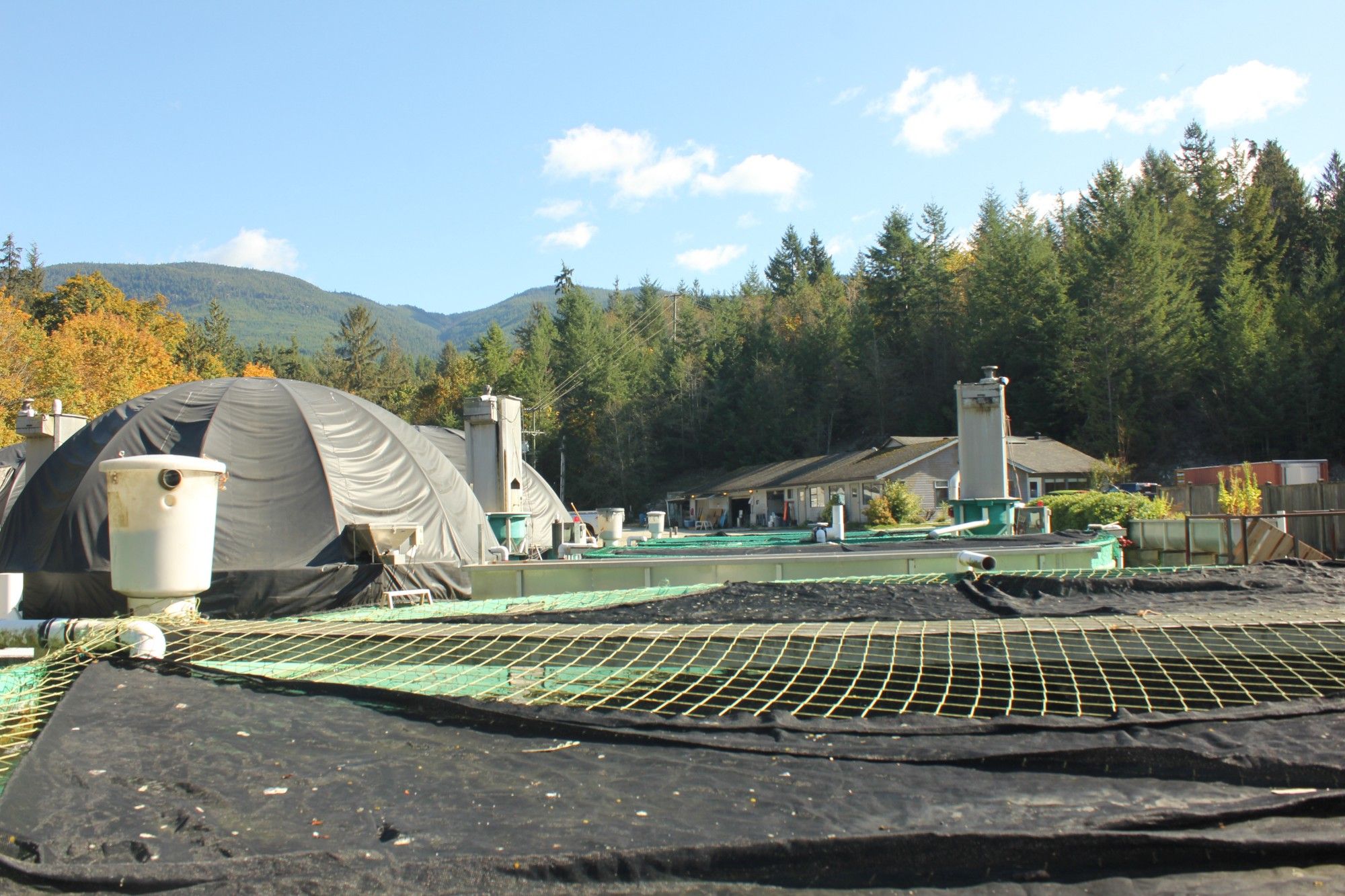
What do you want Northern Divine to be doing 10 years from now?
I see this place, regardless of owner, expanding far beyond our current size. We have almost 67 acres, and there is huge room for growth. I see this place being a Coho Salmon farm first and a Sturgeon farm secondary. Both under land based aquaculture, leveraging research and green technology. We also have a great opportunity to utilize and implement solar energy.
In 10 years, I see this place thriving. The Sturgeon program will come to a point where its caviar production is supporting itself and the meat program comes secondary. It will be a three pronged system: aquaponics, coho rearing (1m to 2m produced and processed on site), and a sturgeon program, all at the commercial level. Our processing site is small, but I think it could keep up.
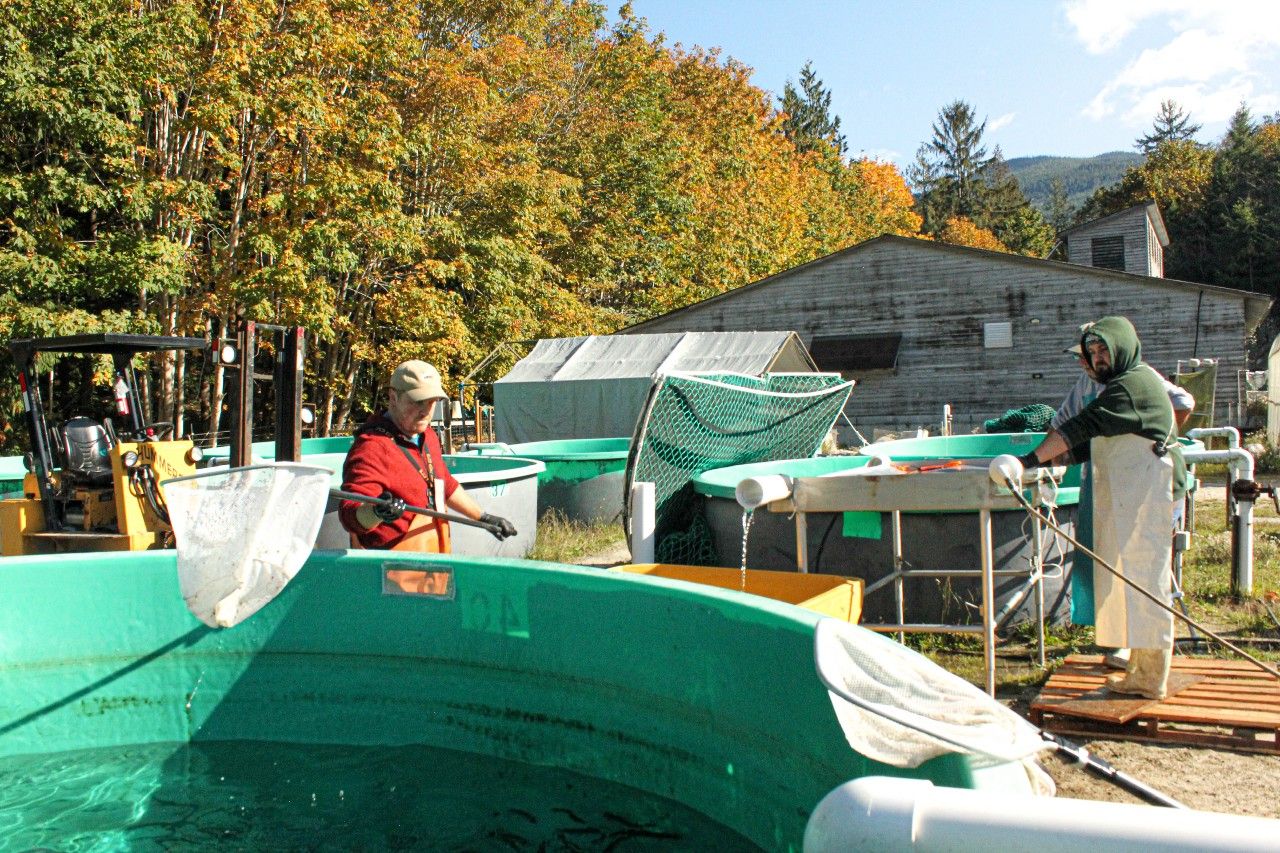

The DFO (Department of Fisheries and Oceans) needs to start taking more accurate numbers of what’s actually out there in the wild stock. Take Halibut for example. Before, when you’d order a whole halibut, you’d get a massive 110lb fish. Local fish markets are telling me that they’re getting a whole fish half that size. It’s not very good for our wild halibut stock if our average fish size has gone down that much in recent years. We need a more elaborate stewardship program with the ministry of environment & natural resources and the DFO.
We, as a society, really need to look at what we are taking out catch wise, because the catch numbers get bigger and bigger each year. What they’re doing up in Alaska and other international waters has much less oversight and regulation. These are the fish that are supposed to be coming down through the Salish Sea. We just aren’t seeing the volume we used to see. They’re all getting picked off up north.
Nobody likes to hear more laws or more regulation, but at this point we need to do more to protect our wild salmon and wild fish stocks. It’s only a matter of time until we collapse the ecosystem from overfishing. We hope the government starts promoting more alternative farming techniques and approves these new tank recirculation systems placed out in the ocean. Our society isn’t taking it as serious as we should.
Our oceans are under a huge amount of stress right now. The more pollution in it right now. The potential of radiation coming from Japan is starting to affect fish stocks. As a society, we are extremely food insecure. We are one natural disaster from having pandemonium. We need to start looking at how we are affecting the environment and how we could be more responsible in the way we produce our food.
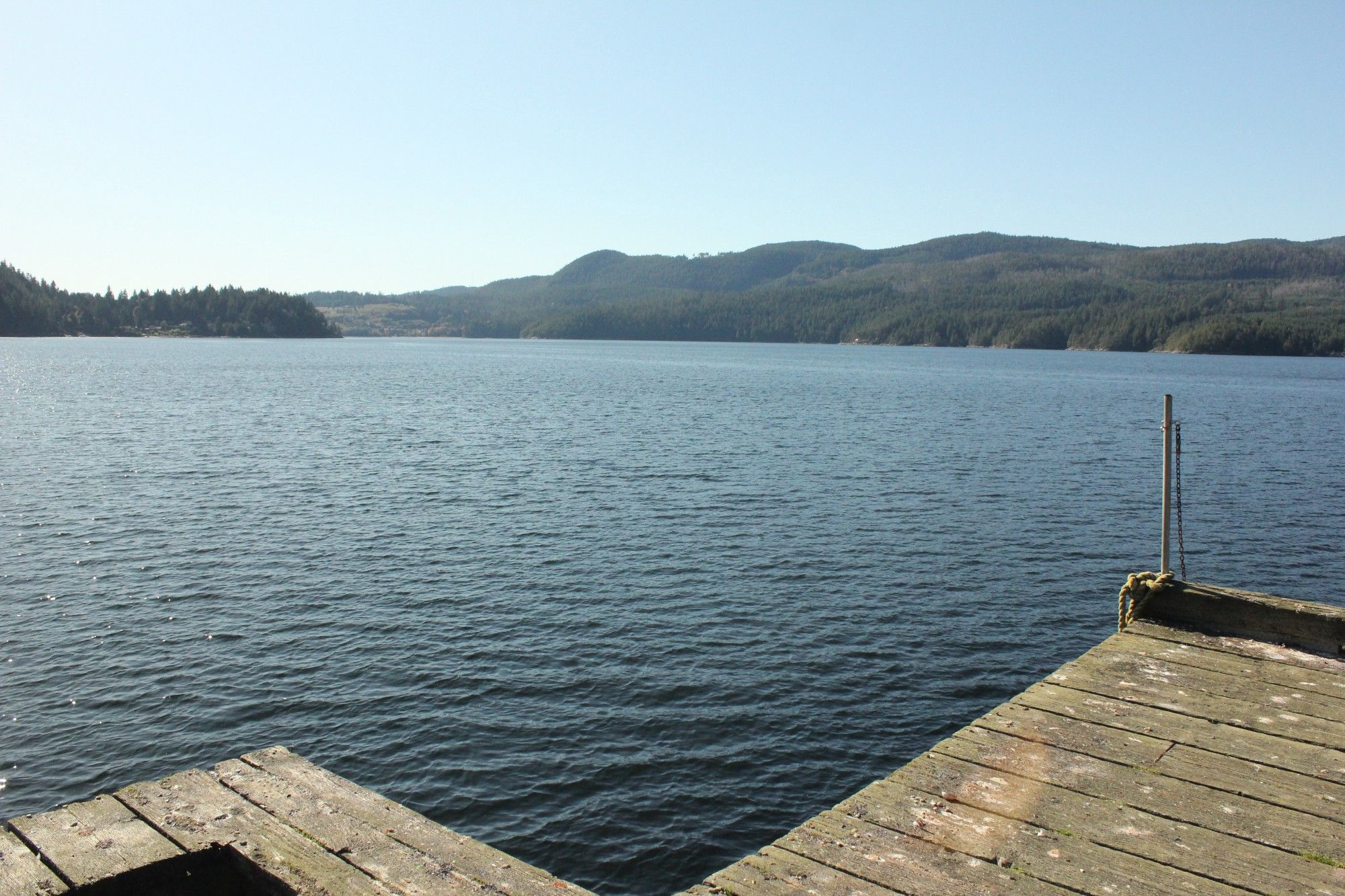
All time greatest purchase you’ve ever made?
The IGA franchise, it got me over here to the Sunshine Coast. It was time for a personal change. Of all my friends, I was the ‘failure to launch’ guy. I lived a carefree lifestyle while all my friends were settling down. When the opportunity came up, I jumped on it and moved out here. Things clicked, I liked the slower lifestyle. I found my home. I moved out here solo, and didn’t know a soul. It was the catalyst for settling down and becoming a responsible adult.
If you had a full day off, what would you do?
I’ve got two young kids. I’d wake up at six in the morning and cuddle with them on the couch. Afterwards, I’d get the day going, making them breakfast. I would give my wife the day off; She’s a stay at home mom. I know she’s got a harder job than I do.
Hobbies and activities have been on the back burner, which is a shame because I used to have a pretty mean golf game. I used to be able to shoot an 85 comfortably.
What are you most excited about in your life?
Watching my kids grow up. My son just started soccer. Seeing him go from a tiny baby to three years old has been incredible. He’s already talking back- a chip off the old block. Seeing my family grow up is what I’m most excited about.
If you could pass any knowledge on to the next generation, what would it be?
It would be that sustainable, land-based aquaculture is viable. It’s not invasive and it’s not a pollutant, if done the right way. There is a real negative PR campaign about fish farms. There are some farms that aren’t doing things the right way, and these are the ones creating the potential disease outbreak and all the problems affecting the wild stocks.
If I could pass something down to the future generations, after coming to see this place, it’s that it’s possible to do profitable land based aquaculture. You just have to have a good vision and a good idea and you want to do something sustainable, go out and do it! There’s countless industrial banks that will lend money to startups who want to do things for the right reasons, to adopt a sustainable business. It is out there, you can start small and move forward very big.
To keep up with our coverage of harvesters like Bryan, and to see how Coastline is building the future of seafood, subscribe to our newsletter.
Check out suppliers like Northern Divine’s on Freshline:
